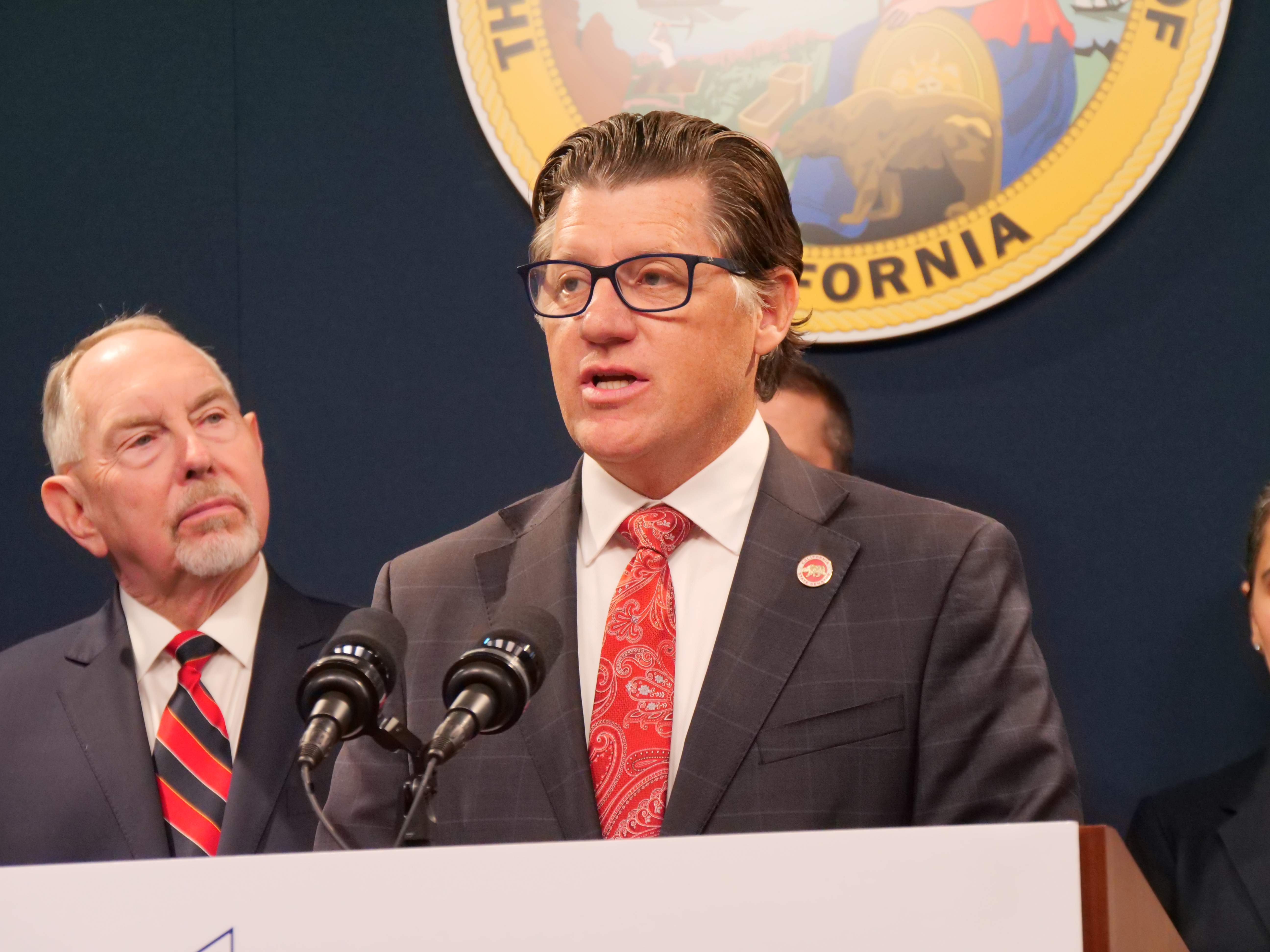Democratic lawmakers on the Senate’s Energy, Utility, and Communications Committee chose not to vote on Senate Bill 1326—which would have repealed a 2022 law mandating higher fixed rate charges on utility bills—thus pulling the plug on the measure April 22.
“It’s shameful that all 14 Democrats on the Senate Energy Committee refused to even cast a vote,” the bill’s author, Republican Leader Sen. Brian W. Jones, said in an April 23 press release. “Thousands of Californians support this measure and their refusal to act is a stark betrayal of the very constituents they claim to represent.”
The bill, known as the Cost of Living Reduction Act, sought to set a cap of $10 for monthly fixed charges, a sharp difference from a rate schedule that included $128 monthly charges proposed by utility companies earlier this year.
The California Public Utilities Commission (CPUC) rejected the utility companies’ plan and is currently considering a tiered fixed rate based on customers’ incomes ranging from $6 to $24.15 per month—modeled after rates charged by the Sacramento Municipal Utility District (SMUD).
“That’s just the charge that they picked for this year because they can justify it by saying that’s what SMUD charges,” Mr. Jones said in closing remarks at the energy committee hearing. “But what rate are they going to pick next year or the year after that?”
Critics of the utility commission plan say matching the community-owned utility’s fixed charges disregards the pricing discrepancies between utility companies, with SMUD charging approximately 55 percent lower rates for energy used than some investor-owned utilities like PG&E.
“The current decision from the [public utilities commission] may be an improvement over the big utilities’ plan, but the fixed charge still remains excessively high,” Mr. Jones said. “I am extremely concerned that the [public utilities commission] now has unchecked power to increase this charge any time it wants.”
He argued that legislators should be responsible for protecting Californians instead of relying on regulators like the utility commission to set policy.
“We must stop deferring legislative authority to a regulator and take back responsibility for making critical decisions such as this,” Mr. Jones said while presenting his bill to the energy committee. “The state needs to be working to lower living costs, not passing more burdens onto renters and households.”
The author argued that maintaining low fixed rate charges while allowing utilities to recover costs through energy usage pricing helps promote lower energy consumption.
“Under the CPUC’s proposal, families will be on the hook for hundreds of dollars of additional yearly utility fees, regardless of their electricity usage,” Mr. Jones said. This move not only contradicts the principles of fair pricing and consumer protection, but also discourages energy conservation and sustainable living.”
Supporters argued that if the utility commission approves the higher fixed rate charge, ratepayers will see their monthly bills increase.
“We fear that the overall bills will not go down,” Kim Stone, representing the California Solar and Storage Association, told lawmakers during the hearing. “People who use less energy ... should be rewarded by paying less for that energy rather than having to pay a high fixed amount no matter what.”
Those testifying in opposition to SB 1326 said higher fixed rate charges are needed to help utility companies cover their costs.
“The $10 cap in this bill would be insufficient to collect fixed costs beyond a small portion that are directly attributable to connecting the customer to the grid, thereby forcing a wide array of fixed costs in the system to be collected exclusively through volumetric charges,” Matt Freeman, staff attorney for The Utility Reform Network, said during the hearing.
“The use of volumetric rates to collect these costs is inefficient and economically regressive ... and places significant burdens on lower-income customers and inequitably charges customers.”
He argued that lawmakers should allow the utility commission to regulate the industry.
“The Legislature should not hamstring the commission on this respect,” Mr. Freeman said. “We think it’s time to revise how we think about collecting these costs and rates to do it in a manner that’s fair for everyone.”
A representative for utility employees agreed and suggested the move would lower ratepayers’ bills, while noting the need for companies to increase fixed rate charges to help cover the cost of wildfire mitigation and climate-related strategies the state is undertaking.
“We need rates to be lower if people are going to switch to electric vehicles and appliances,” Rachel Koss, representing the Coalition of California Utility Employees, said during the hearing. “We need rates to be lower if we’re going to get all of the grid work done.”
Increased fixed rate charges originate with Assembly Bill 205 passed in 2022 in a controversial gut-and-amend process that allowed the measure to bypass policy committees and limit debate on the matter.
“AB 205 represents everything wrong with the one-party Democrat rule: rushed and flawed legislation detrimental to hardworking Californians,” Mr. Jones said in his press release.














